I’ve worked at the Observer for just over a 10th of its 225 years. About 1,200 of its 11,700 Sundays. Though newspapers deal in the present moment, more than other organisations they carry a weight of memory about them, an accumulated sense of all the decisions and judgements and observations that have brought them to where they are. You feel that history as soon as you start to write or photograph or edit. You are never making something entirely of your own; you are making something that each week goes on top of the pile of all that has gone before. Not writing a story, but writing an Observer story.
The Who Do You Think You Are? of this paper would not be one of those plodding episodes that reveals only the odd bad marriage in a solid path to respectability. It would rather be one of those genealogies full of long-forgotten passions and eccentric rivalries, of sudden shifts of outrageous fortune and tear-jerking tragedy. From the beginning in 1791, the Observer wanted to be in the thick of life, and ghosts of all that weekly desperation to make some sense of the world persist.
I began at the paper just after one of its several near-death experiences, when it was bought by the Guardian Media Group in 1993. I was to be deputy editor of a magazine slated to be relaunched a couple of weeks later, apparently, I discovered, in the absence of office space and computers and working telephone lines. From the outside, newspapers often look like effortless generators of opinion and fact; from the inside, the vestigial fear of blank space, of having to create not only something from nothing, but the Observer thing from nothing, in the next two days or two hours never entirely goes away.
It still strikes me as one of the few miracles of my life that the first couple of editions of that first magazine I worked on emerged full of pictures and writing and without the paper’s first yawning white pages in two centuries. And even now that this week’s words and pictures have an alternative life in the terra incognita of the internet, just a hint of that miracle still arrives with the physical pages each Sunday.
One of the first people I met at the Observer was the photographer Jane Bown, who had by that point been taking celebrated pictures for the paper – carrying her cameras in a wicker shopping bag – most weeks for 40 years. She had been in dressing rooms with the Beatles, had caught Nye Bevan off guard, but still what struck you most about her was her constant sense of having to do it again this week as if for the first time.
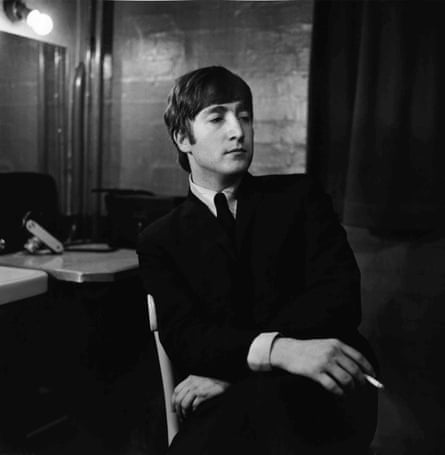
To go on assignment with her, as I was fortunate enough to do several times, was to put aside your own various anxieties about getting the story, and act as therapist and counsel that things would go to plan, that despite all her fears this wouldn’t be the time she did not get the picture, that all would be well. Jane’s motivation in this weekly struggle was not her previous work, or what the editors might want, but a sense that she wanted to do the heroes of her own Observer memory proud. She would be constantly saying “Terry [Kilmarton] wouldn’t like this. Or, Michael [Davie] would have done it this way…” The important thing wasn’t to get a great picture, but to get a great Observer picture.
Though editors have come and gone, and technology has created opportunities and crises in equal measure, the more writers and photographers I got to know, the more that sense of the underground stewardship of something valuable persisted. Philip French might have been writing film reviews for longer than I had been alive but, like the rest of us, he approached each blank page with a sense of trepidation and a degree of excitement. At Philip’s wonderfully celebratory funeral last year, it was mentioned that he never quite got over the pressure that had been attached to his early stand-in theatre reviews for the paper, which had generally come with the killer pay-off “Kenneth Tynan is away”. The past century of the Observer was full of hard acts to follow, but trying and failing and trying again to live up to them is how great newspapers hold on to their voice. Part of writing is learning to listen to that voice, while your words form on the page.
There has been a lot of talk in recent weeks of “fake news”, of the sense in which we have entered an era in which nothing is believable, in which conspiracy and rumour have the same status as fact. The “media” in general is blamed for this, as if it were some unaccountable monolith. It seems just possible, however, that the backlash against fake news will involve a renewal of the understanding of the importance of properly sourced information, “liberal elitist journalism” as its detractors like to call it. The election of Trump, and the prominence of the self-satisfied conspiracists at Breitbart has, for example, led to a spike in subscriptions to the New York Times.
Like people, newspapers acquire good names over generations; trust is hard won and easily lost. The Observer’s history has had its share of missteps and wrong notes, but I’d like to think there is something consistent at its core – a desire to do a better, more honest, more Observer-y paper this week, than all the weeks that have gone before. This determination isn’t rooted in any editorial diktat or executive memo – rather, I’d say in the various (not always successful) efforts of writers and columnists and photographers to live up to the best of the past, not only to the standout names – George Orwell, Tynan and the rest – but also to all those who have checked their facts, filed their reports, met their deadlines and smuggled in the odd memorable Observer phrase, week in week out.
That Observer voice is rooted in two eras of the paper in the 20th century. In the first, under the editorship of JL Garvin, from before the first world war to the middle of the second, it became a formidable insiders’ paper, a critical friend of the establishment. Garvin, an autodidact from Birkenhead who left school at 13, grew the circulation from 40,000 to 200,000 with a determination to explain the increasing complexities of Britain’s place in a troubled world. He was a strong supporter of the country going to war in 1914, only to live with the fact that his beloved son, Ged, was killed at the Somme. That tragedy is memorialised in an extraordinarily moving series of letters between father and son (published in the book We Hope to Get Word Tomorrow) and it coloured and shaped Garvin’s subsequent editorial stance right through to 1942. It’s tempting to believe that in those years the Observer started to become a paper of nuance rather than stridency, of human ironies rather than polarising certainties.
There is a great searchable archive of the paper in facsimile. From time to time, I’ve spent a distracted morning reading how Garvin’s paper told the unfolding history of those years. Looking for grim parallels with the present moment, I recently went back and looked at how Mussolini’s rise to power was reported. There were some uncanny echoes, with our correspondent reporting how Il Duce’s “movement” was dependant on his being able to “dominate crowds like an actor”.
Of how “references to Russia are frequent” and that in his opinion “the present world crisis is essentially a crisis of capitalism. The crisis must work its way even more deeply. New revolutions will break out; and these alone will form the new type of Europe.”
More than those echoes, though, I was struck by another piece that even in its anonymity captured all of the familiar tensions of trying to hold powerful men to account. “Our own correspondent” was, in 1924, summoned to an audience with Mussolini, to explain to the fascist some of his negative reporting: “‘The Observer,’ Mussolini said, ‘Yes I know the Observer, it is an important organ – very important. But sometimes it has subtly veiled criticisms and it has said that I am a dictator, that I rule without parliament. That is untrue.’ He said this latter,” our correspondent noted, drily, “with some heat…”
That tradition of independent enquiry became the watchword of David Astor’s editorship after the second world war, in which the paper campaigned against post-imperial conflicts and for international cooperation and human rights (campaigns that led to the creation of Amnesty International and the focus of early British opposition to apartheid). It aimed at an expansive and inquisitive cast of mind, ambitious in its scope, determinedly open minded.
I remember talking to the playwright Michael Frayn who had been on the staff writing some of the great foreign reports for which the paper became known in the 1960s. His memory of the commissioning process was of Astor saying: “Michael, why don’t you go to Havana for a few weeks and come back with 5,000 words?” Frayn was in thrall to the freedoms and terrors that such an open brief entailed. He recalled it as harder work than almost anything he had done. Unlike writing fiction, he suggested, “if you are trying to describe a real state of affairs in the world that other people can check up on, your choices are much more limited. A lot of the time I sat in total despair trying to write those pieces.” The budgets and time scales may have shifted a bit since then, but the principle of trust in writers and photographers (and a bit of that resultant despair followed by thousands of words) hasn’t changed.
In my near quarter century with the paper, beyond editorials, I have never known an instance of somebody being told what to write, or leaned on to have a particular take on a story. There is a philosophy of trust in this, but also a grudging understanding that, given the generally genial but stubbornly independent spirits that have always populated the paper, it wouldn’t really work. This doesn’t always lead to slickly coherent messages, maybe, that would fit 140 characters, but perhaps it does, at its best, sound something like a pluralist, complex, human take on how the world itself sounds. And after 225 years of trying, there is still always next week to do it again.
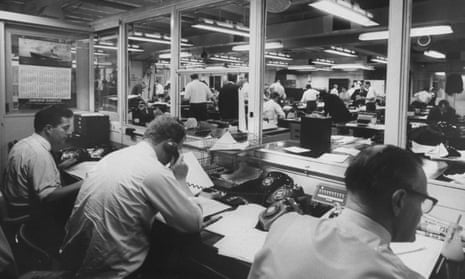


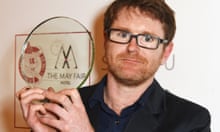
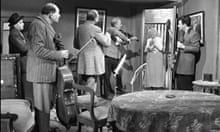
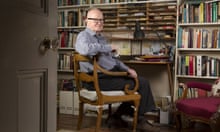

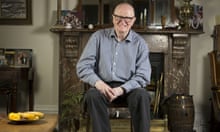
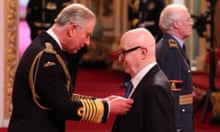
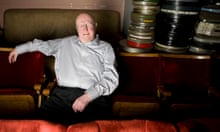

Comments (…)
Sign in or create your Guardian account to join the discussion